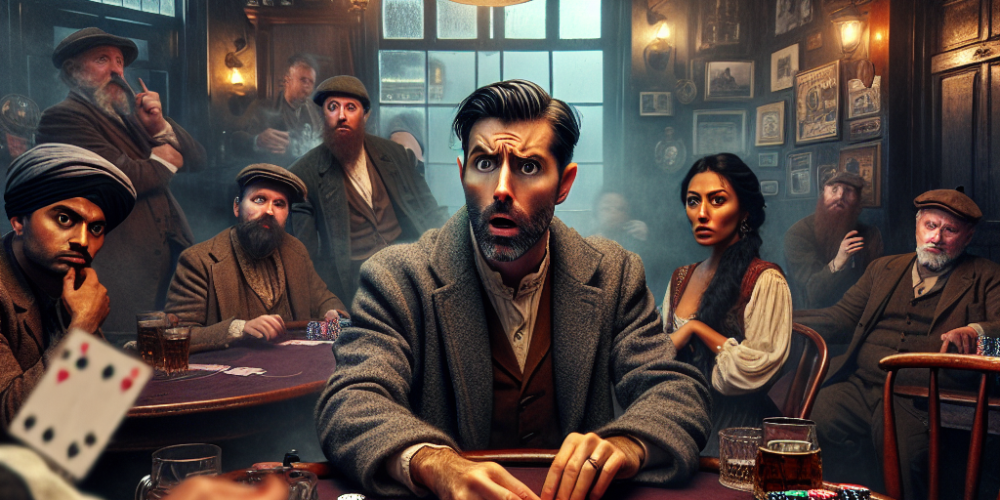Discover how a tough game in an Irish casino helped me refine my Texas Hold’em strategy.
There’s something magical about Dublin’s vibe that makes playing poker there a totally unique experience. Maybe it’s the crisp, fresh air mixed with the historical allure — or just the friendly, chatty nature of the players I find myself up against. Last night’s game at a bustling local casino was especially memorable, not just for the atmosphere but for the harsh poker lesson it served me up.
The evening started as usual with a friendly dealer shuffle and the comforting clink of chips. I settled in, ready for a solid session of Texas Hold’em, the game I’ve come to love and obsess over during my travels. The table was a mix of tourists and some obvious regulars, their faces etched with the quiet confidence of seasoned players.
Early on, I played conservatively. I watched, sipped my dark, frothy Guinness, and waited for a good hand. Poker’s a lot about patience, right? Finally, the cards started to warm up to me. I caught a 9♠ and J♠ on a decent flop that landed a 7♠, 10♠, Q♣. A straight flush draw — a phenomenal position! My heart pounded with the thrill of the chase; this is what every poker player lives for.
One of the regulars, a burly man with a gentle Irish brogue, raised the pot. I decided it was time to play hard or go home, so I re-raised. The suspense built as the turn showed a K♠. There it was — my straight flush! The table tensed. I tried to appear calm, my face a mask of indifference even as my excitement skyrocketed.
The river was a harmless 2♥, and I knew it was my moment. I pushed all-in, hiding my glee. Only the Irishman called, turning over his cards to reveal a Q♠ and Q♥. A full house, queens over tens. He was strong, but not strong enough against my straight flush.
Then came the twist — as he reached to muck his hand, the dealer paused and then pointed out that he actually had four queens — having missed the Queen of spades on the board which paired with his hand, overshadowing my beautiful straight flush. A classic, crushing bad beat.
The table erupted in gasps and sympathetic groans. I felt my stomach drop, my earlier elation plunging into despair. Losing with such a strong hand was brutal, the kind of scenario you read about in poker strategy books but hope to never experience firsthand.
I took a moment, stepped back, and breathed in deeply. The key lesson wasn’t just about the volatility of poker hands but about how to handle loss — to learn from it, to not let it define your night or your skill as a player. I chatted with the Irishman afterwards, sharing a laugh about the odds. He clapped me on the back, his eyes twinkling with a mix of sympathy and mirth. “That’s poker, lass,” he said in his lilting accent. “She’s a harsh mistress.”
We played on, the night stretching into the wee hours of the morning, the earlier loss weaving itself into the ongoing narrative of my poker career. Each hand was a new chapter, every decision a line in the story of that evening. I didn’t end up claiming back my losses, but I maintained a steady, thoughtful game, learning a bit more about the art of bouncing back.
Reflecting on it now, the real takeaway wasn’t about how to win at poker, but how to lose constructively. It was about embracing the bad beats as part of the game, as stepping stones to becoming a better player. In poker, as in life, it’s about how you handle the lows that help define your highs.
I’ll carry that night with me as I continue my poker journey — the hands, the faces, the bad beat, and the laughter. Dublin taught me a poker lesson wrapped in a cultural embrace, a reminder that every table, every city, adds its color to my playing style. Until next time, may your hands be strong and your bad beats bearable.

David Harrison stands tall in gambling journalism, marrying his firsthand casino experiences with a deep understanding of betting psychology. His articles transform complex gambling jargon into engaging tales of strategy and chance, making the world of betting accessible and enjoyable. David’s knack for narrative extends beyond print, making him a sought-after speaker on gambling trends and future bets. In the realm of gambling, David is both a scholar and a storyteller, captivating readers and listeners alike.
















